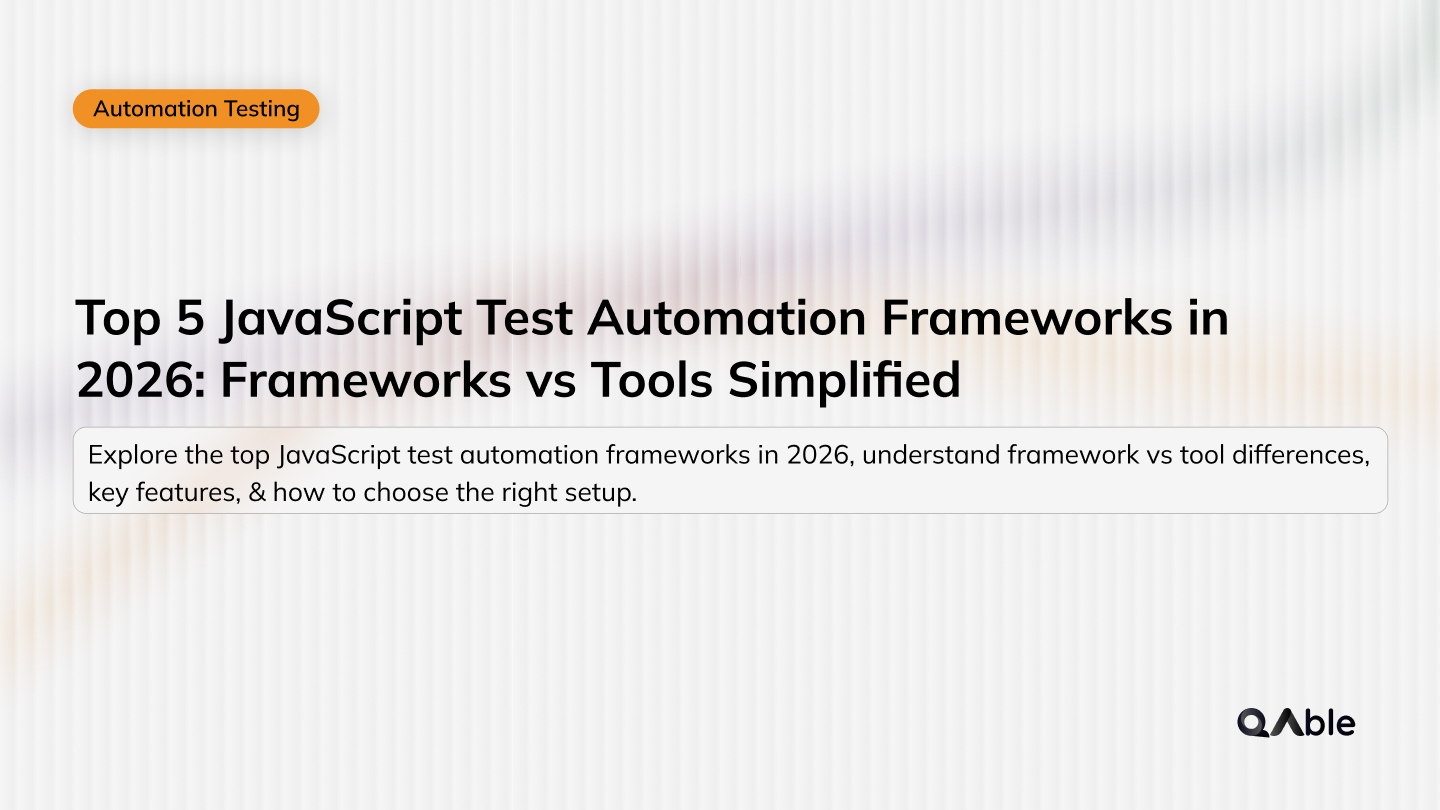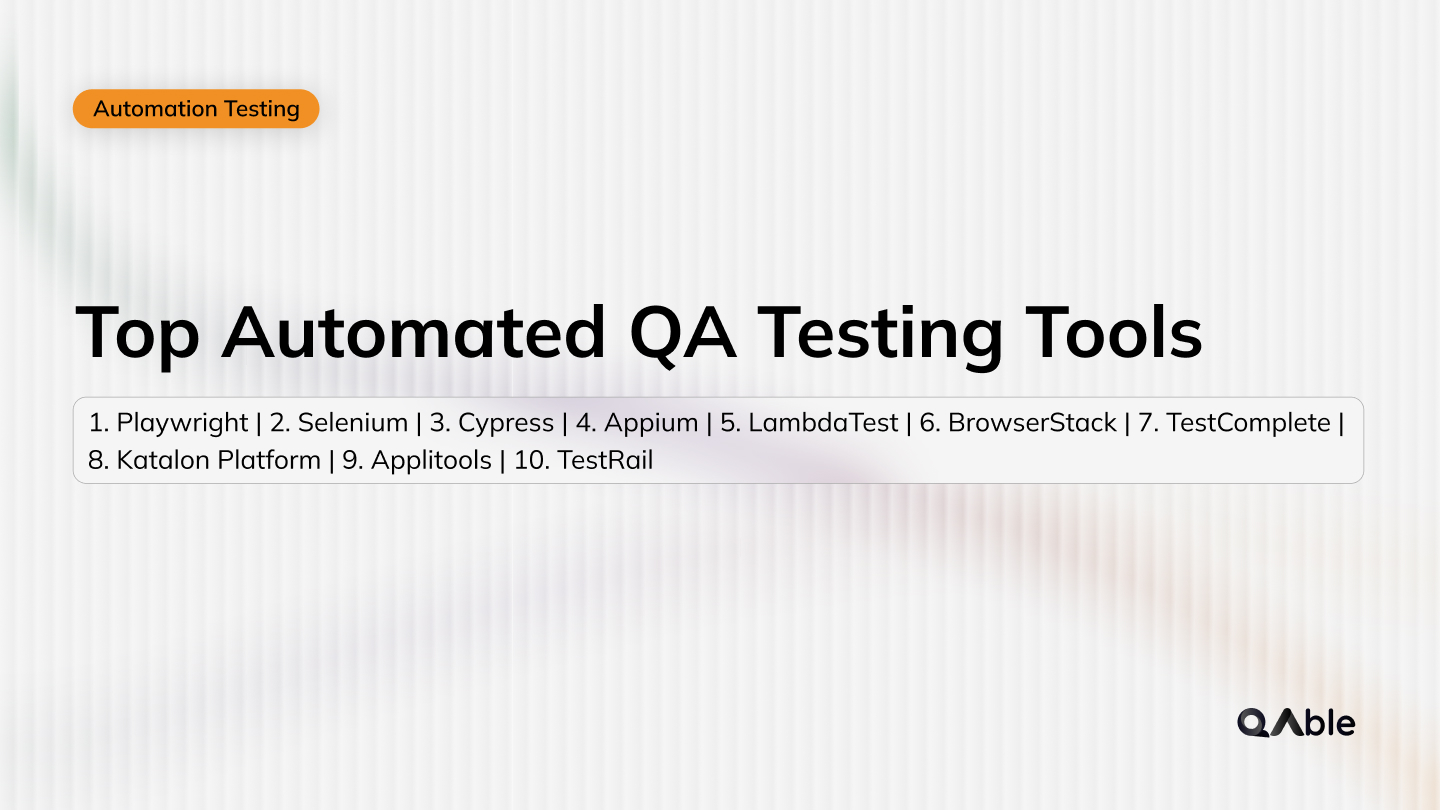Table of content
SHARE THIS ARTICLE
Is this blog hitting the mark?
Contact Us
Table of Content
- What is Functional Testing?
- How can you understand functional testing practically?
- Types of functional testing
Testing is one of the major processes of software development without which none of the deployment takes place. Also, with testing, we get to know the performance of any application in the real world. Testing ensures the productivity of software along with reliability.
We are experienced and renowned software testing company in India & USA. Using our professional experience we are sharing the details of Functional Testing.
The testing process is too vast and has its own phases of execution. We call it is Software Testing Life Cycle. Functional testing is one of those phases and today we will discuss functional testing tools along with types of functional testing.
Please note, if you are looking for result-driven software QA services in India, feel free to contact us. Also, we are capable to guide you in the proper direction regarding the quality of the software.
What is Functional Testing?
As the name describes, functional testing ensures the performance of the developed application towards the requirement shared by the client. Each function is thoroughly tested.
QAble is a leading and well-established QA outsourcing company in India & we offer end-to-end testing of web and mobile applications.
Hence if you are searching for the best functional testing company in India & USA, QAble is your constant companion.
How can you understand functional testing practically?
Functional testing is a vast subject and to get a hand on it, you must practice a lot along with some professional certification. In order to connect with the method, let's consider a functional testing example:
Suppose you want to test a hotel management application. Now when functional testing is concerned, you need to change various functions of the application such as:
- Login/Registration
- Date and Room Selection
- Check-In/Check-Out
- Discount Feature
- Add-on Feature Implementation
- Logout and many more.
Types of functional testing
Functional Testing is like a backbone of the entire testing process. It analyses the performance of the application in various scenarios. Expected outputs are checked by setting different environments.
Under this section, we will discuss the types of functional testing that include the following:
Unit Testing
During unit testing, the QA team validates each section of the code. Output against every part is tested and verified. The aim of Unit testing is to check each unit of the code individually and testers will not move to the next unit until they are satisfied with the current one.
Unit testing plays an important role in functional testing because it minutely tests the coding section in various parts because which chance of errors is minimized. All the known issues are fixed by the developer after the submission of the unit testing report.
Component Testing:
Another type of testing that supports component testing is component testing. Under this method, QA validates each component of the developing application. The major focus during component testing is on the functionality testing and usability of the module.
Quality testers check each module towards the defined set of inputs in order to validate the expected output. Again here, multiple environments are set in order to ensure the performance of the application. Being an experienced software testing company we are well versed with the same.
Smoke Testing:
You must have heard the term Smoke Testing. This is also a type of functional testing in which a fresh application is tested depending upon the requirement of the project. The response of basic functionalities is validated during Smoke Testing.
If you are considering it as exhaustive testing, you are wrong because here the aim is to analyze the critical features and functions of the application. Testers are responsible to examine the functional behavior of the newly developed application. To execute the same, a number of test cases are made and followed.
Integration Testing:
We have already discussed the component testing above and during integration testing; the performance of the application is tested by keeping all the components together. A tester verifies the application after merging all the existing components.
Lots of time it has been seen, that individual components perform well but they create problems after integration. The problem can be because of any reason including compatibility issues. Hence to avoid such scenarios, integration testing is a must.
Integration testing is a common type of functional testing and it is performed through automation testing. As we know, developers start their project by writing codes in a module which is the standard way. By working on an independent module, sometimes compatibility issue comes that gets rectified after integration testing.
Regression Testing:
As we know, updates are an integral part of the software development process, and these changes affect the existing system most of the time. To check such bugs, Regression Testing is performed where the effect of new changes on the existing application is validated.
Further, during Regression Testing, the QA team ensures, that additional code will not hamper the performance of the working application. Their job is to eliminate those bugs that come because of newly added features.
Various functional testing tools are available in the market that supports Regression Testing.
Sanity Testing:
Sanity Testing is performed when small changes are made to an existing system. Rather than performing end-to-end Regression Testing, we prefer Sanity Testing. The test only monitors that the new modifications will not create any problems.
Also, if we say Sanity Testing is the subset of Regression Testing, it will not be wrong. We have seen many testers who consider Sanity and Smoke Testing as one, but that is their mistake.
Sanity Testing only focuses that new changes should affect the existing system and in the case of the Smoke Testing newly added module is tested.
System Testing:
As the name describes, the testing method is used for the analysis of the absolute system. The intent behind testing is to ensure the performance of the whole integrated system against the requirement shared by the client.
A detailed report is given to developers in case a bug is found. Multiple testers are involved in the testing process who were not part of the development phase. They validate the system’s performance with a fresh mindset.
Apart from that, this method of functional testing considers the expectations of stakeholders as well. Hence business requirement is also kept in the loop along with functional and technical one.
User Acceptance Testing:
UAT (User Acceptance Testing) is the final stage of the testing process where the intent of testing revolves around real-world objectives. Also, the process of testing is done at the moment of final delivery so that performance could be checked with real data.
Functional Testing Tools
We have discussed the approach of Functional testing along with its example and types. Now we must know some Functional Testing Tools in order to make our testing process effective and result-driven.
Being a professional functional testing company in India, we are sharing some leading testing tools to execute the QA process:
Kobitan: The tool is used to test all types of applications such as Web, Mobile, and Hybrid. Also, the testing method supports automation testing and frameworks like Selenium & Appium. The functional testing tool gives flexibility with the integration of the CI/CD process.
TestComplete: This is a GUI test automation tool that validates the performance of desktop, web, and mobile-based applications. It runs functional UI testing in parallel on the cloud as well as local machines.
Digivante: Using this functional testing tool you are capable of running 200 scripts in 4 hours. More than 100 real browsers, operating systems, etc are provided to validate the compatibility of the developed applications.
Final Thoughts:
We are a renowned software testing company in India and we ensure spreading the right content to the people who are willing to involve in quality testing.
We have mentioned the concept of functional testing along with tools. The content will help you for sure. Also, let us know if any query comes.
Discover More About QA Services
sales@qable.ioDelve deeper into the world of quality assurance (QA) services tailored to your industry needs. Have questions? We're here to listen and provide expert insights


Nishil Patel is the Co-founder of QAble, delivering advanced test automation solutions with a focus on quality and speed. He specializes in modern frameworks like Playwright, Selenium, and Appium, helping teams accelerate testing and ensure flawless application performance.
.svg)














.webp)
.webp)
.png)
.png)











.png)



.png)

.png)

.png)





.jpg)













.webp)

